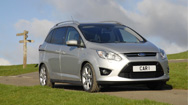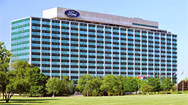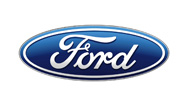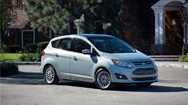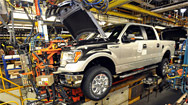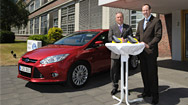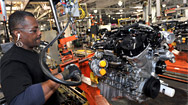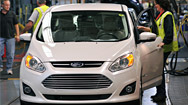Letter from Alan Mulally
“We are going further by committing to use resources responsibly, because efficient operations yield benefits economically, socially and environmentally. Indeed, going forward, the companies that are sustainable will continue to make products that people want and value, and they will do it using fewer resources and less time.”
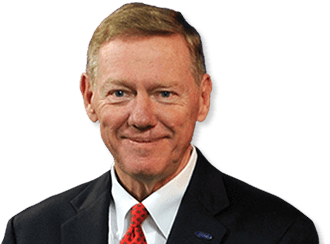
Our ONE Ford plan continues to deliver, and Ford Motor Company had another successful year in 2012. We have been solidly profitable since 2010, and we continue to invest in and expand our operations around the world, taking advantage of the flexibility our global vehicle platforms provide us. We launched 25 vehicles and 31 powertrains globally in 2012, a testament to our ongoing commitment to product development. We sold 2.2 million vehicles in the U.S. in 2012 and, for the first time, we sold more than 1 million vehicles in our Asia Pacific and Africa region, with record sales in China. We also announced plans to revitalize our Lincoln brand as the Lincoln Motor Company, which will introduce an exciting new lineup of great luxury vehicles.
Our strong global performance was led by the Focus, which was the best-selling nameplate in the world in 2012, and the Fiesta, the best-selling B-car in the world based on the latest global data, while the F-Series truck was the fourth best-selling global nameplate.
Strengthening Our Balance Sheet to Build a Sustainable Business
More than any other milestone, the return of the iconic Ford Blue Oval symbolizes our renewed financial strength. We earned back our investment grade rating from the second of three major ratings agencies in the spring of 2012, triggering the release of the Blue Oval, which had been used as collateral when we borrowed $23.5 billion for our restructuring. This significant achievement also allowed us to lower our borrowing costs and repay loans. Financing our plan and strengthening our balance sheet is a key part of our ONE Ford plan. It reflects the long-term perspective that is at the heart of our ONE Ford plan and our sustainability strategy, which guide us as we build Great Products, a Strong Business and a Better World.
ONE Ford also has transformed our Company into a truly global enterprise in terms of our products and processes. For example, we expect sales in the Asia Pacific region to grow to a full third of our total sales by the end of this decade. We also plan for small vehicles to grow to represent 55 percent of our sales as we serve customers in all markets with a full family of vehicles – small, medium and large; cars, utilities and trucks – giving us a product portfolio that is well balanced and attuned to a world concerned about energy security and climate change.
A sustainable business is also a resilient one. We are implementing the same ONE Ford plan that guided our transformation in North America as we now respond to the volatile economic conditions in Europe by accelerating new product introductions, enhancing our brand and restructuring our manufacturing operations. Europe remains an important market for Ford, and we are committed to serving customers and achieving profitable growth in all regions.
Contributing Solutions
In the longer term, changing markets, the cost and availability of resources, congestion, urbanization and climate change, among other issues, will dramatically alter the nature of private car ownership, while also presenting new opportunities to grow our business. As we expand and realign globally and introduce new products, we are contributing solutions to economic development, energy security and independence and environmental sustainability.
Our fuel economy leadership is one example of our commitment to address climate change. In 2012, we made a strong entry into the electrified vehicle market, giving our customers six new choices: the Fusion Hybrid, C-MAX Hybrid and Lincoln MKZ Hybrid; the Fusion Energi and C-MAX Energi plug-in hybrids; and the Focus Electric, a pure battery electric car. We also are introducing innovative mobile smartphone apps, such as PlugShare on MyFord Mobile, which helps drivers locate nearby charging stations. By March 2013, Ford was the second-leading seller of electrified vehicles in the U.S., capturing 15 percent of hybrid sales, compared to about 3 percent in 2012.
Customers also are responding positively to our efficient EcoBoost® engines. These gas-turbo direct-injection engines provide as much as 20 percent better fuel economy than a traditional engine, without sacrificing performance. In 2012, we reached a major milestone by producing our 500,000th EcoBoost engine worldwide, just three years after its launch.
Our commitment to sustainability extends to our manufacturing processes as well. Our water strategy, which prioritizes actions in water-scarce areas and takes community and ecosystem needs into account, complements our energy efficiency, greenhouse gas and waste management targets and initiatives at our plants.
Our lean, green and flexible Michigan Assembly Plant is an example of how we are working on multiple fronts to transform our manufacturing facilities to be more sustainable. We invested $550 million to convert the plant, which formerly built large SUVs, into a modern and flexible facility that builds some of the smallest and most fuel-efficient products in our lineup. In 2012, the Michigan Assembly Plant became the world’s first facility capable of building vehicles with a full array of powertrains – gas-powered, electric, hybrid and plug-in hybrid – all on the same production line. This flexibility is important because it enables us to give customers the power of choice in selecting vehicles to fit their lifestyles, while also giving us the ability to adjust to meet that demand. The plant uses landfill gas and a solar photovoltaic array – one of the largest in Michigan – to cut greenhouse gas emissions and help us gain experience with battery storage of solar electricity.
We are leveraging this experience with sustainable manufacturing in our new facilities in Asia. Our plants under construction in China, for example, use flexible manufacturing, designed-in safety processes, and energy-, water- and waste-saving technologies that are among the most modern in the world.
In addition, we continue to lead efforts across our industry to support human rights in the automotive supply chain, including understanding how Conflict Minerals may be used in automotive products and how to identify and eliminate them. Our actions on human rights and environmental improvements are key elements of our continued commitment to implementation of the United Nations Global Compact.
Serving customers and delivering profitable growth for all of our shareholders begins with creating vehicles that offer best-in-class quality, fuel efficiency, safety, smart design and value. We are going further by committing to use resources responsibly, because efficient operations yield benefits economically, socially and environmentally. Indeed, going forward, the companies that are sustainable will continue to make products that people want and value, and they will do it using fewer resources and less time. Looking beyond our own operations, we are committed to bringing our knowledge, innovative potential and the power of our people to help solve global sustainability challenges ranging from mobility to climate change. By working together, we are contributing to a better world and a sustainable future for all.
![]()
Alan R. Mulally
President and Chief Executive Officer
June 2013

